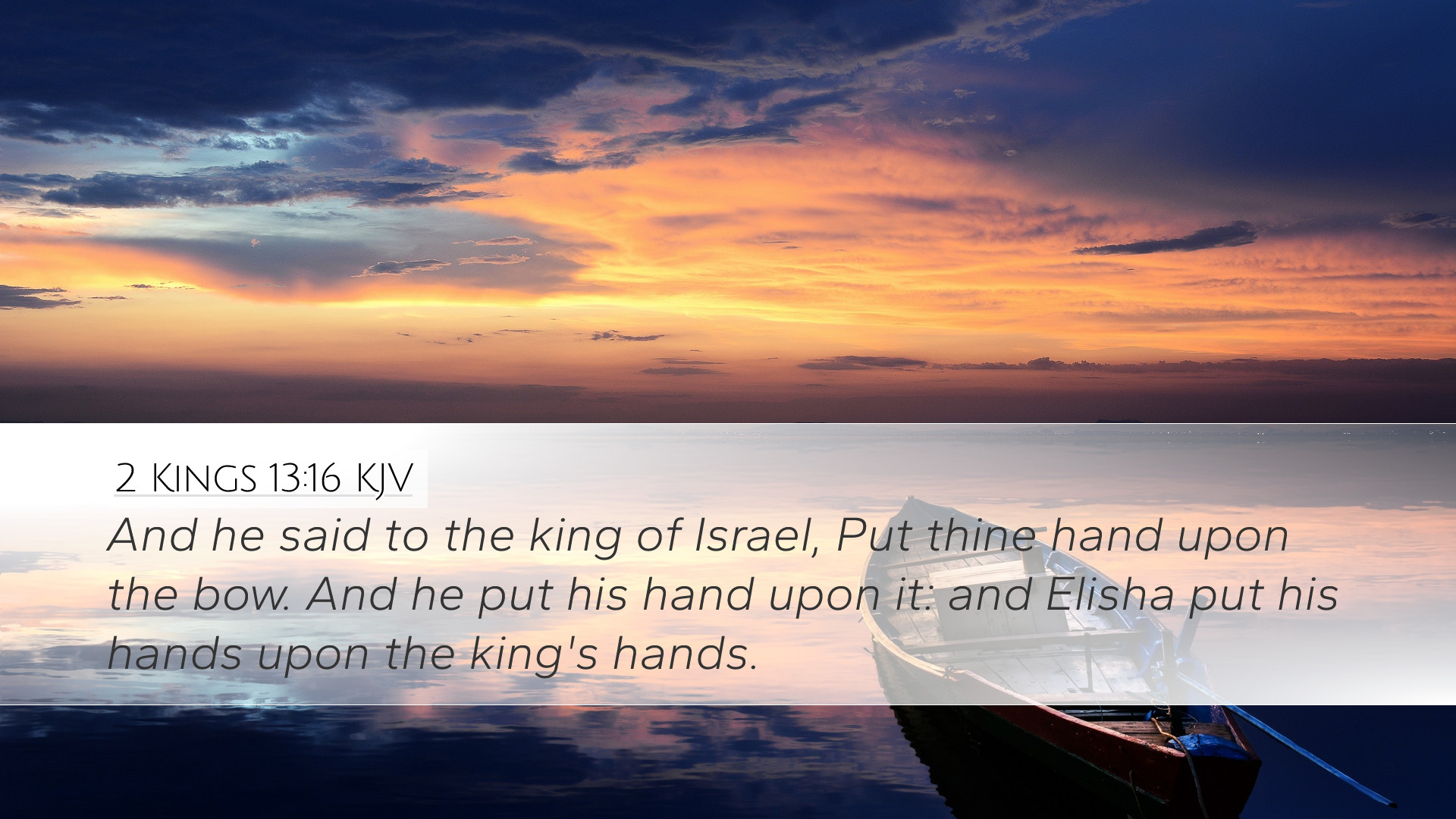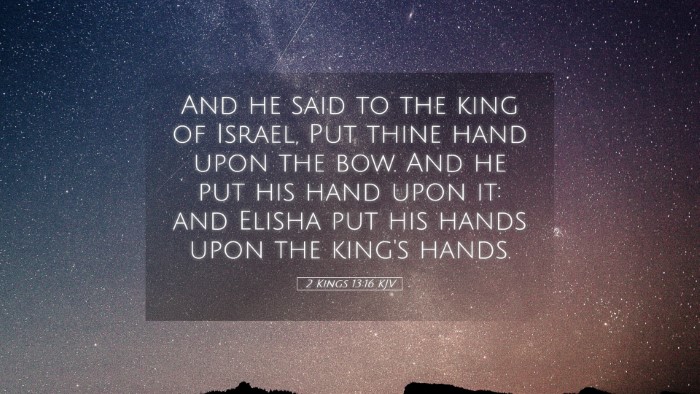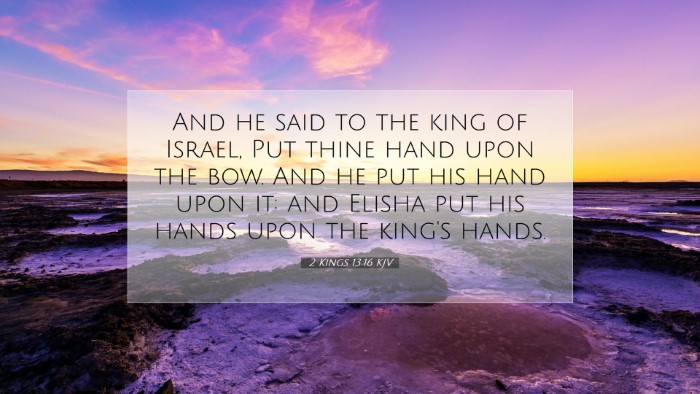Bible Commentary on 2 Kings 13:16
Verse Context: 2 Kings 13:16 (KJV) reads: "And he said to the king of Israel, Put thine hand upon the bow. And he put his hand upon it: and Elisha put his hands upon the king’s hands."
Background and Setting
This passage occurs during the reign of Joash (or Jehoash), king of Israel, amidst a period of Israel's ongoing conflict with Syria. The prophet Elisha, the successor to Elijah, plays a pivotal role in directing the affairs and military endeavors of Israel through the guidance of God. This moment reflects both the physical and spiritual realities of Israel’s situation, as they seek divine intervention in their battles.
Exegesis of the Verse
1. The Action of the King: When Elisha instructs Joash to place his hand on the bow, it symbolizes the need for personal involvement and initiative. The bow represents the power and capability to engage in battle, while the king’s hand signifies authority and the acceptance of God’s guidance.
2. Divine Empowerment: Elisha placing his hands on the king’s hands is a significant act infused with meaning. Matthew Henry notes that this transfer of power and blessing reflects God's presence and empowerment. It shows that, despite the king's limitations and weaknesses, divine strength can transform human effort.
3. Symbolism of the Bow: The bow serves as a metaphor for the power of prayer and reliance on God in spiritual warfare. Adam Clarke emphasizes the importance of striving spiritually, where the bow can also represent the readiness to defend one's faith or engage in spiritual conflict.
Theological Implications
This verse highlights several theological truths vital for pastors and theologians:
- Collaboration with God: The act of placing hands on the bow illustrates that God often requires our cooperation. The action is not solely about divine intervention but also about human responsibility in enacting God’s will.
- Empowerment through Prophetic Ministry: Elisha’s role emphasizes the importance of prophetic voices in guiding and directing God’s people. The prophet not only foretells but also empowers through action and physical symbols.
- Faith in Action: The narrative demonstrates that faith is not passive. The king’s obedience in putting his hand upon the bow can serve as a lesson on the active nature of faith, which must align with God’s plans through practical steps.
Application for Contemporary Believers
For modern pastors, students, and scholars, this verse offers rich applications:
- God’s Empowerment: Just as Elisha empowered Joash, contemporary leaders must rely on God’s strength in their ministries. They should facilitate environments where individuals can seek and receive God’s guidance and power.
- Engagement in Spiritual Warfare: The imagery of the bow encourages believers to actively engage in spiritual battles, understanding that their strength comes from God. Acknowledging prayer as a formidable weapon is vital for spiritual warfare.
- Listening to Prophetic Voices: Today’s leaders should remain attentive to the prophets or leaders in their lives. There is wisdom in recognizing that God often speaks through others to guide us in our decisions.
Conclusion
2 Kings 13:16 serves as a powerful reminder of the interplay between divine providence and human agency. It showcases the necessity of faith in action, underlined by the necessity to seek God’s empowerment through prophetic means. Just as Joash was encouraged to actively engage in the battle ahead of him, so too are contemporary believers called to involve themselves fully in God’s purposes, trusting in His strength and guidance.


